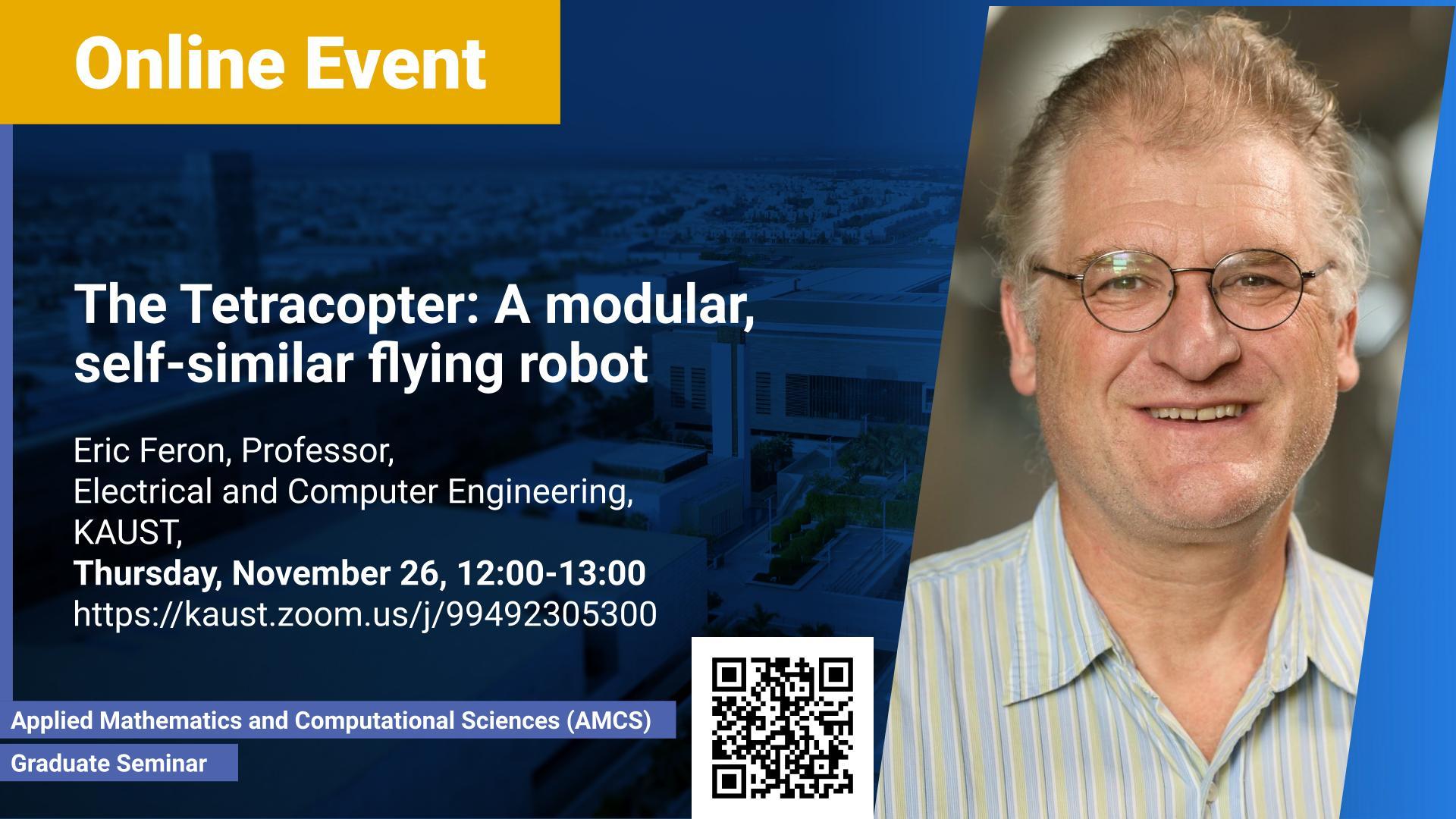Abstract
Modular robotics deals with robots that are an assemblage of smaller sized and often identical robots. The benefits of modular robots are many, chief among them being how easily they can be transported from one location to another. Moreover, their size can be adjusted according to the task at hand without requiring extensive redesign or specialization, therefore making them the object of significant research efforts.
Aerospace robotics is no exception the foregoing trend, and research laboratories and industry have undertaken several efforts aimed at building modular robots capable of flight. Inspired by fractal geometry, our effort aims at developing a modular robot, the Tetracopter, which meets stricter aerodynamic and structural requirements. When a first prototype flies, hopefully before June 2021, the main question will remain: What is it useful for?
Brief Biography
Eric Feron is Professor of Electrical and Computer Engineering at King Abdullah University of Science and Technology since 2019. Earlier, he was a tenured professor at the Georgia Institute of Technology and the Massachusetts Institute of Technology. Eric Feron’s interests are using fundamental concepts of control systems, optimization theory and computer science to address problems in aerospace and transportation engineering, including air transportation, aerial robotics, embedded software and system safety, and human-machine interaction. His proudest mathematical achievement is an English translation of Étienne Bézout's General Theory of Algebraic Equations. Inspired by Teilhard de Chardin and Edgar Morin, Eric Feron believes the entire world should switch to online education and take his own online courses, wherever possible. He holds licenses to operate airplanes and boats, including sailboats and submarines. At KAUST, he is an avid cyclodidact and has not given up on resuming windsurfing yet.
